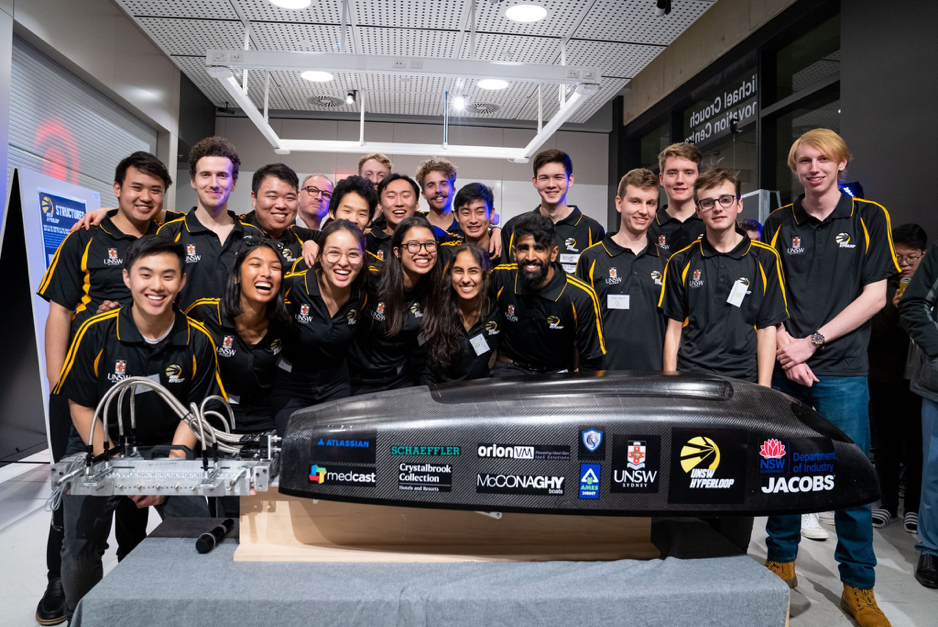Why maths?
Maths plays an integral role in various aspects of society. It can be used in science, economics and actuarial studies, amongst many other fields. This was the main reason why I decided to first study maths at high school level, and then pursue a career in engineering. The fact that we can use math to improve daily life is what makes math fascinating, and I wanted to play a role in improving everyday life through my mathematical skills and passion in engineering.
In this article, I want to give a brief overview of some of my experiences studying maths, why I think it’s great, and what it can lead to. I really strongly encourage you to choose maths – you never know what it might lead to!
My experience studying maths
Many students may find high school level maths challenging. I’ll be honest, university level maths can also be challenging. This is because we start to look at maths as an abstract concept. We start solving problems with numbers that don’t exist, or view vectors as an element in space rather than the traditional definition of vectors being a magnitude and direction. But that shouldn’t stop me from studying maths, and I’m glad it didn’t!
In fact, I’ve really enjoyed studying maths at university level. You get to solve problems, and then more generally apply them to real-world situations.
The most satisfying feeling when studying math is when the topic starts to make sense, and you see all the concepts start to link. My main point of advice to students who believe that they’re not a “maths student” – either through high school, at university or after – is to keep pushing through and work hard to make sure you prove yourself wrong. It will be worth it!
What studying maths can lead to
Studying maths at high school really keeps your options open for university – some courses even require a certain level of maths as a pre-requisite. But studying maths at uni can similarly lead to heaps of opportunities and cool student-led projects. While I’m still in my first year and learning the basic math skills required, there are many students who get to apply these skills and create projects that have real impacts in engineering.
A great example of a student-led project is the Hyperloop competition, based on Elon Musk’s idea that a new form of transport called Hyperloop can travel over 1000km/h. Students must design and construct a pod that can travel at maximum speed in a vacuum tube and decelerate successfully without crashing.
Engineering students and Structures Lead Yasmin Zaman emphasised how maths, physics and chemistry were used to determine how to create the perfect resin for carbon fibre. Moreover, the structures team conducted force analysis to decide the correct carbon fibre weave since each weave has a different pattern, depending on the kinds of forces it will be exposed to.
Maths was also used to understand how the pod will mov since the pod is required to travel at high speeds. As a result, engineers need to use maths to determine the power of the motors and the chassis. On top of this, engineers need to ensure the pod is light.
ABOVE: The UNSW Hyperloop team with POD-001: Mercury
Not only is maths used in engineering, but a whole range of fields, just some of which you can search using AMSI’s career function here.
I think that’s one of the reasons I enjoy studying math. It’s obviously crucial for my field of engineering, but also opens a new way of thinking, and provides lots of second and third options if I happen to change my mind about my career.
Still unsure?
It’s okay to feel a bit unsure about math, but know that you will always have a maths community around you and ways to improve.
Because it’s such a significant field, there will always be support available for students taking maths. At uni, weekly tutorial sessions are there to help students to understand the homework questions. Lecturers also have consultation hours so students can ask and consolidate their knowledge. Furthermore, various societies are also willing to provide students support by providing revision seminars before exams. And you’re always absolutely welcome to ask any questions you have in the uni sections of the ATAR Notes Forums!
Moreover, because many have recognised the gender disparity within the STEM field, there are plenty of opportunities for minority groups such as females, the disabled and Indigenous students to receive academic support and even networking opportunities so they are able to explore the various career pathways in maths.
With maths playing an important role in my degree, I look forward to seeing how maths can help me achieve my dream job as an aerospace engineer. Hopefully, it can lead me to numerous employment opportunities in space agencies such as NASA, SpaceX and the European Space Agency. Or perhaps it can lead me to go into a postgraduate pathway. Regardless, completing a degree with maths can lead to endless opportunities.
Special thanks to Yasmin Zaman for sharing the Hyperloop team’s manufacturing process. You can follow the UNSW Hyperloop team’s progress in the competition via their Facebook page.






